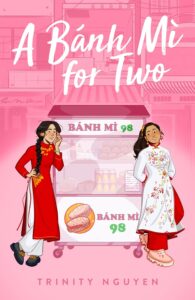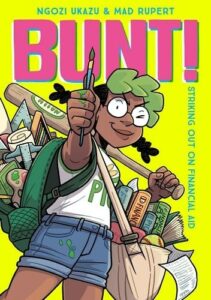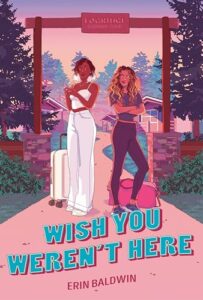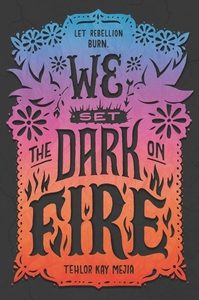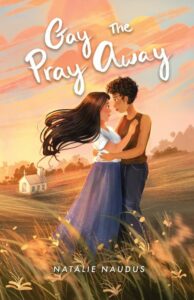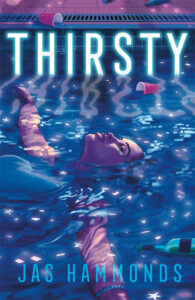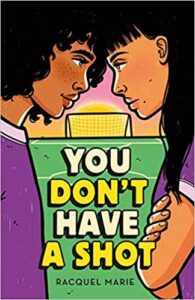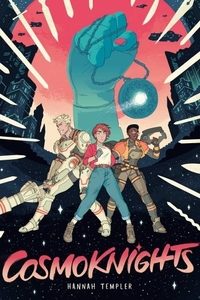Buy this from Bookshop.org to support local bookstores and the Lesbrary!
If you are looking for a sweet and sizzling summer romance to end your summer on a high note, A Bánh Mì for Two by Trinity Nguyen is a sweet romance between a Vietnamese American college student and a food blogger in Sài Gòn who is looking for her inspiration again after the death of her father. I would like to thank MacMillan for providing the Lesbrary with an ARC—A Bánh Mì for Two comes out on August 20th. I greatly enjoyed this novel; the romance is sweet, and both characters have interesting arcs as they struggle to deal with what becoming an adult means in terms of dealing with family and making big choices for themselves. Plus, I learned about street food in Sài Gòn and got very hungry in the process!
The romance takes place between Lan, a girl who currently helps run with family bánh mì stand with her mother and cousin, and Vivi, an American college student in Sài Gòn for a semester abroad. Vivi has told her parents she’s studying in Singapore, but in reality has come to see if she can track down the family history her mother refuses to speak about. As a bonus, she hopes to visit the places that her absolute favorite food blog has written about before they went on a long hiatus. Lan is helping her mother with their stand after the death of her father—she had had aspirations of going to college and being a writer, having enjoyed the popularity of the food blog she had started with the help of her father, but has felt both adrift and drowning under the weight of family expectations. A chance encounter in a park connects the two girls. Vivi, upon realizing that Lan is her favorite food writer, is excited, a little starstruck, and determined to help her find her writing inspiration again; Lan realizes that her deep roots in Sài Gòn could be what Vivi needs to discover her family’s past. As they spend more time together, they grow closer, they begin to realize that this may be more than a summer friendship.
I thought the romance between Lan and Vivi was very cute. Both girls, after a rocky start, are smitten with each other. Through Vivi’s eyes, Lan once again falls in love with her home city and her passions, and through Lan, Vivi is inspired to be bold and reach for what she wants. Both girls inspire and help each other and their feelings grow from that. If you are looking for some sweet first love, this is the place—even their first fight is barely worth the name, and they’re soon back to being joined at the hip.
Besides being a cute romance, this book also has a lot to say about growing up and figuring out how to deal with your family as a newly-fledged adult. Although they come from very different backgrounds and life experiences, Lan and Vivi are both at the same stage of life, where they are technically grown but still trying to figure out how to make their life their own. For Vivi, this study abroad experience is her chance specifically to make decisions that her parents wouldn’t approve of. Lan, on the other hand, is having trouble not taking all her family’s problems on herself, even when they urge her to live her own life. Throw in Vivi’s hidden family history, and there’s a lot for the girls to deal with on top of their burgeoning romance, but it is, in my opinion, the meat of the story.
All in all, A Bánh Mì for Two is a cute romance that successful drew me into a wonderful mood and distracted me from the simmering summer heat. I would again like to thank the publisher for the ARC. A Bánh Mì for Two comes out tomorrow, and I absolutely recommend it if you are looking for a cute summer romance to round out your summer.

